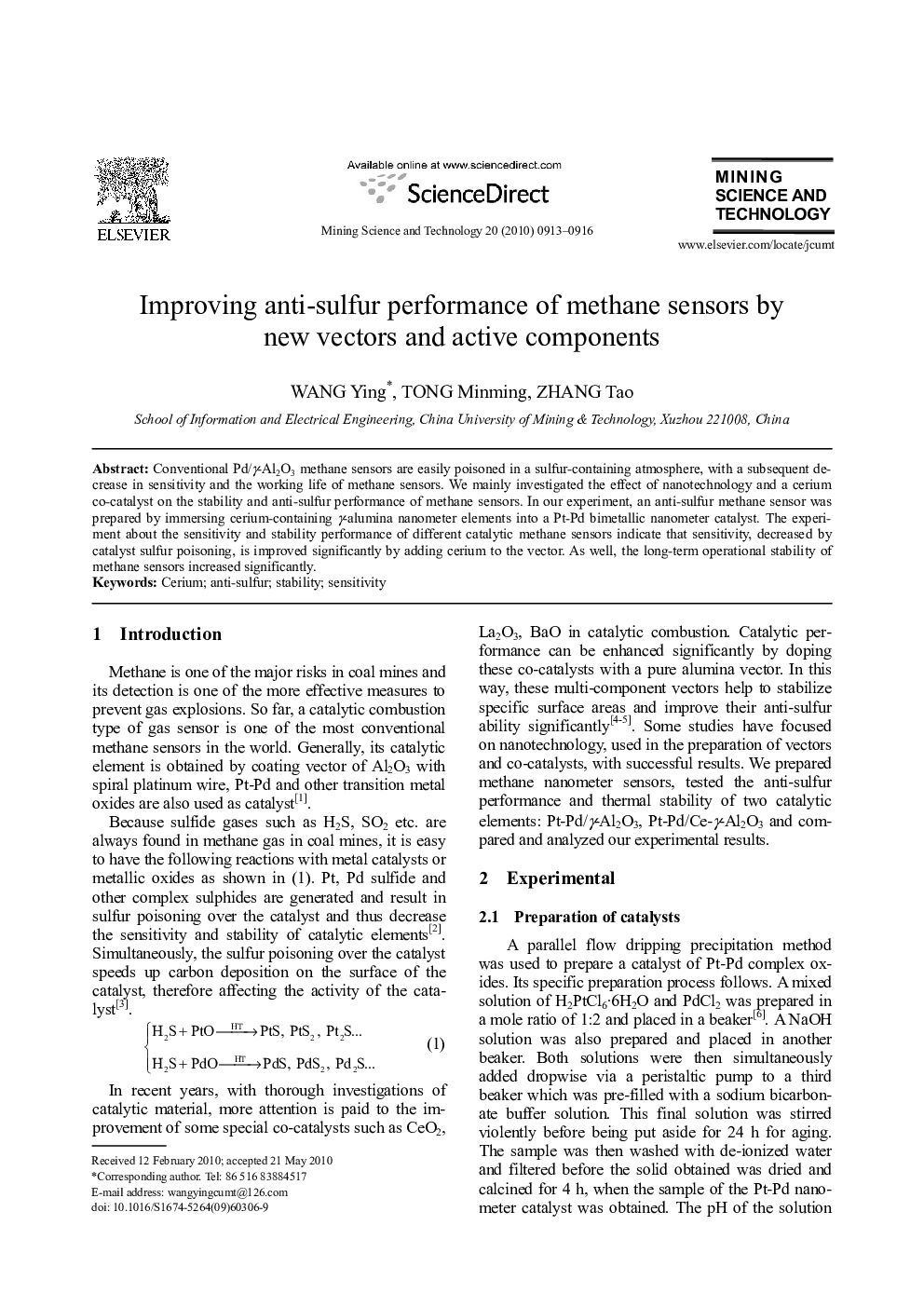| Article ID | Journal | Published Year | Pages | File Type |
|---|---|---|---|---|
| 294602 | Mining Science and Technology (China) | 2010 | 4 Pages |
Conventional Pd/(-Al2O3 methane sensors are easily poisoned in a sulfur-containing atmosphere, with a subsequent decrease in sensitivity and the working life of methane sensors. We mainly investigated the effect of nanotechnology and a cerium co-catalyst on the stability and anti-sulfur performance of methane sensors. In our experiment, an anti-sulfur methane sensor was prepared by immersing cerium-containing (-alumina nanometer elements into a Pt-Pd bimetallic nanometer catalyst. The experiment about the sensitivity and stability performance of different catalytic methane sensors indicate that sensitivity, decreased by catalyst sulfur poisoning, is improved significantly by adding cerium to the vector. As well, the long-term operational stability of methane sensors increased significantly.
